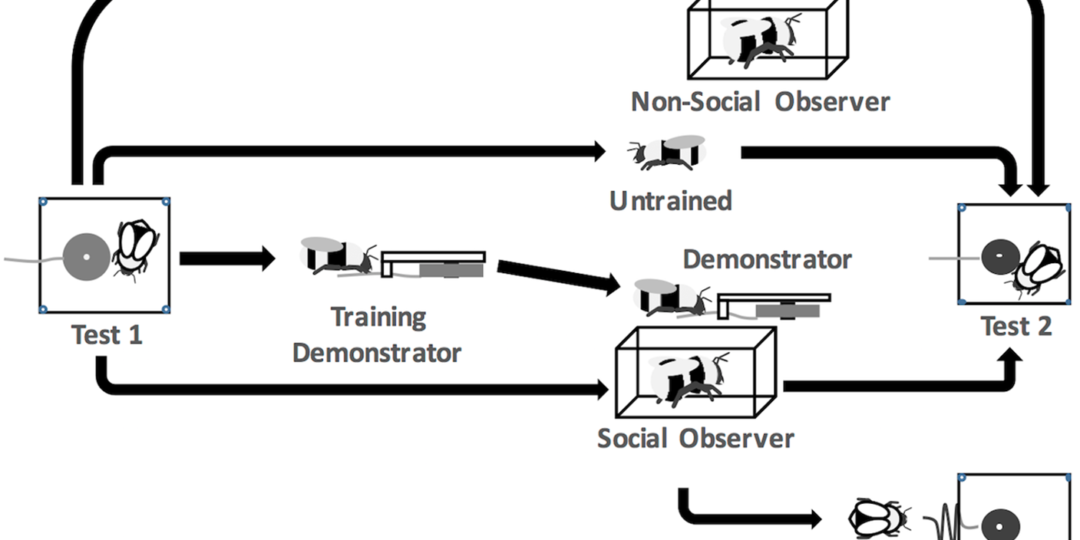Bumblebees Can Teach Each Other Learned Behaviors
by Catie Colliton

A recent study out of Queen Mary University of London shows that bumblebees (Bombus terrestris) can learn to pull a string for a reward then teach others to do the same. This suggests that that bumblebees engage in cultural transmission, a form of social learning.
The Experiment
In this experiment, individual bumblebees were presented with blue artificial flowers filled with sucrose. The flowers were placed under a small glass table so the bees couldn’t reach them. After the initial presentation of the flower, the bumblebees were taught to use a string attached to the flower to pull it out from under the glass table. Bees that mastered the string pull were tested further with a coiled string, which does not have an immediate reward. This tests the bees’ ability to understand a means-end relationship: that the flower is connected to the string. The bumblebees learned this second task less readily. However, they were able to teach others how to pull the short string within 5 attempts on average. This is a very social action, especially because bumblebees typically do not forage together and often compete for resources.
Some of the results of this experiment can be seen at the video below:
https://www.youtube.com/watch?v=A4jVSrP_7ow
The String Test
The string test is a common experiment for testing the cognitive abilities of animals. It can help to give us ideas of how animals communicate with, and learn from each other. This kind of social behavior can lead to whole groups of a species adopting new behaviors. As they teach the adopted behavior to future generations, the population may evolve. The string experiment is unique, especially for bees, because it shows that the animal subject can learn a new, unusual, and unnatural technique to forage for food, simply by observing others and trial-and-error individual exploration. This study does more than shed new light on the cognitive abilities of invertebrates like bumblebees (and potentially honey bees), however.
Other Implications
These results give us hope that bees have the capacity to adapt quickly (see our last post here for more). As we all learn to adapt to the irregular and extreme weather brought on by climate change, we can’t forget the vital role that bees and other pollinators play in the production of food for the U.S. and the world. Noah Wilson-Rich, Ph.D. of The Best Bees Company explored this idea in his TED X Talk in 2014. Studies have shown that bees are able to learn new skills and adapt quickly to help humans in innovative ways, like detecting bombs, cancer, or blood glucose levels. If and when the need arises, perhaps humans will teach bees new foraging techniques and help them adapt to difficult climates.
Check out Dr. Noah Wilson-Rich’s TED X Talk here.
Catie Colliton is a third year beekeeper. Her primary role with the Urban Beekeeping Lab is analyzing honeybee samples for diseases.